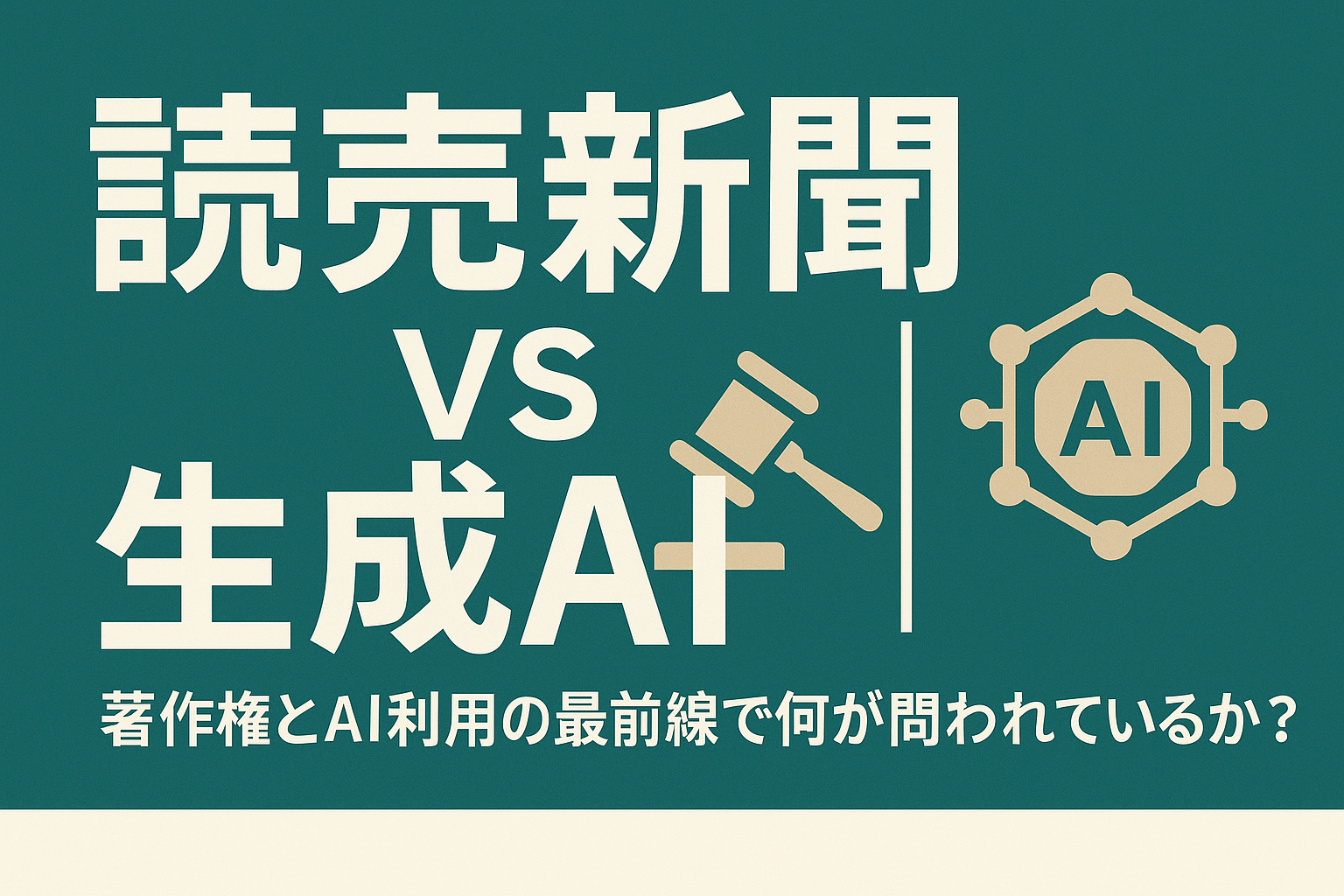On August 7, 2025, a landmark lawsuit was filed that has drawn attention from both intellectual property and journalistic ethics communities in Japan. Three branches of the Yomiuri Shimbun—Tokyo, Osaka, and Western Headquarters—have jointly sued the U.S.-based generative AI company Perplexity in the Tokyo District Court, seeking an injunction against the use of their articles and approximately ¥2.168 billion (about USD 14 million) in damages for alleged copyright infringement through unauthorized use of their news content.
What’s the Issue?
Perplexity offers a search service powered by generative AI that integrates and summarizes multiple pieces of information from across the web in response to user queries. While this may seem like a convenient service at first glance, the complaint alleges that the company obtained and reproduced approximately 119,467 Yomiuri articles without permission. Yomiuri claims this constitutes blatant “free riding.”
At the heart of the case is whether the unauthorized extraction and use of journalistic content—intellectual assets of a media organization—for AI training or output is permissible under copyright law.
A Growing Collision Between AI and Copyright
By design, generative AI inherently depends on existing copyrighted works through its processes of “collection, analysis, and summarization.” However, if such use exceeds the bounds of what is considered legitimate “quotation” or “fair use,” it increasingly risks being regarded as copyright infringement.
There have been similar cases abroad—for example, The New York Times filed a lawsuit against OpenAI and Microsoft—but this is reportedly the first case in Japan where a major media outlet has sued a generative AI company. The outcome is expected to influence future legal and policy discussions both in Japan and internationally.
Yomiuri’s Stance — The Threat to Trust in Journalism
Yomiuri Shimbun strongly criticizes the unauthorized use of its articles by AI systems, arguing that it undermines the foundation of trustworthy journalism. News articles are created through substantial investment in reporting, editing, and verification. Having this content collected and reused for free is, in Yomiuri’s words, equivalent to “cannibalizing the infrastructure of journalism.”
Key Questions Ahead — Legal Reform or Business Model Shift?
This lawsuit raises wide-ranging and complex issues:
- To what extent should AI-driven “information collection and reassembly” be allowed?
- Is it illegal to reproduce publicly available articles without permission?
- Should a compensation model be established for the use of copyrighted works by generative AI?
These questions may ultimately necessitate revisions to Japan’s Copyright Act or the introduction of new regulatory guidelines. At the same time, AI developers may be increasingly compelled to seek licensing agreements or partnerships with rights holders such as media organizations.
Can Journalism and AI Coexist?
As generative AI rapidly becomes more prevalent, society is being forced to confront the delicate balance between the right to know and intellectual property rights. This lawsuit goes beyond a mere copyright dispute—it challenges us to consider how we protect and evolve the information infrastructure in the age of AI.
Journalism does not exist for AI. Rather, both journalism and AI should exist for society. A calm, rational debate and thoughtful institutional design based on this principle are now more necessary than ever.

